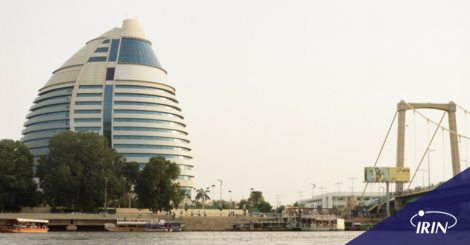Your podcast discovery platform
Curious minds select the most fascinating podcasts from around the world. Discover hand-piqd audio recommendations on your favorite topics.

piqer for: Deep Dives Global finds Globalization and politics Health and Sanity
Daria Sukharchuk is a journalist based in Berlin, where she works as a news anchor for Russian-language OstWest.tv. Her writing has appeared in Motherboard and ZEIT Online, Cosmopolitan, as well as Afisha (Moscow's leading city magazine). She specializes on the topic of human rights, migration, and mental health.
She has her BA in Chinese history, and, never having forgotten her history background, has also contributed to the educational project1917.com.
The EU Immigration Funds Allocated To Sudan Are Being Used To Abuse Refugees
Since 2015, the EU has signed a series of deals with countries in Africa, the point of which has been to lessen the flow of refugees to Europe. The idea was that countries like Sudan would spend this money on building camps for refugees on their territories, stop them from crossing the Mediterranean, and also fight human trafficking.
But in Sudan, this money is spent on things like motorbikes for the secret service — an organisation known for its human rights abuses. And the Sudanese government often sends the refugees back to countries like Eritrea (most of the refugees in Sudan come from there), where they are very likely to be tortured and killed. Very little money is spent on improving the lives of the refugees in Sudan:
... of the €400 million allocated through the fund, only three percent went towards developing safe and regular routes for migration. The bulk was spent on migration control.
Of course, spending money on the police in Sudan is justified — it's the police who should fight human trafficking. But in reality, the human trafficking and smuggling networks in Sudan and Eritrea have only gained strength, and the Sudanese government doesn't seem to put much effort into stopping the trafficking — despite taking the EU money.
It is not clear what the EU should do in this situation — it is unlikely that it would open its borders and let in the refugees from Africa. But the approach that is now used in Sudan is neither ethical nor sustainable. We need another way.
